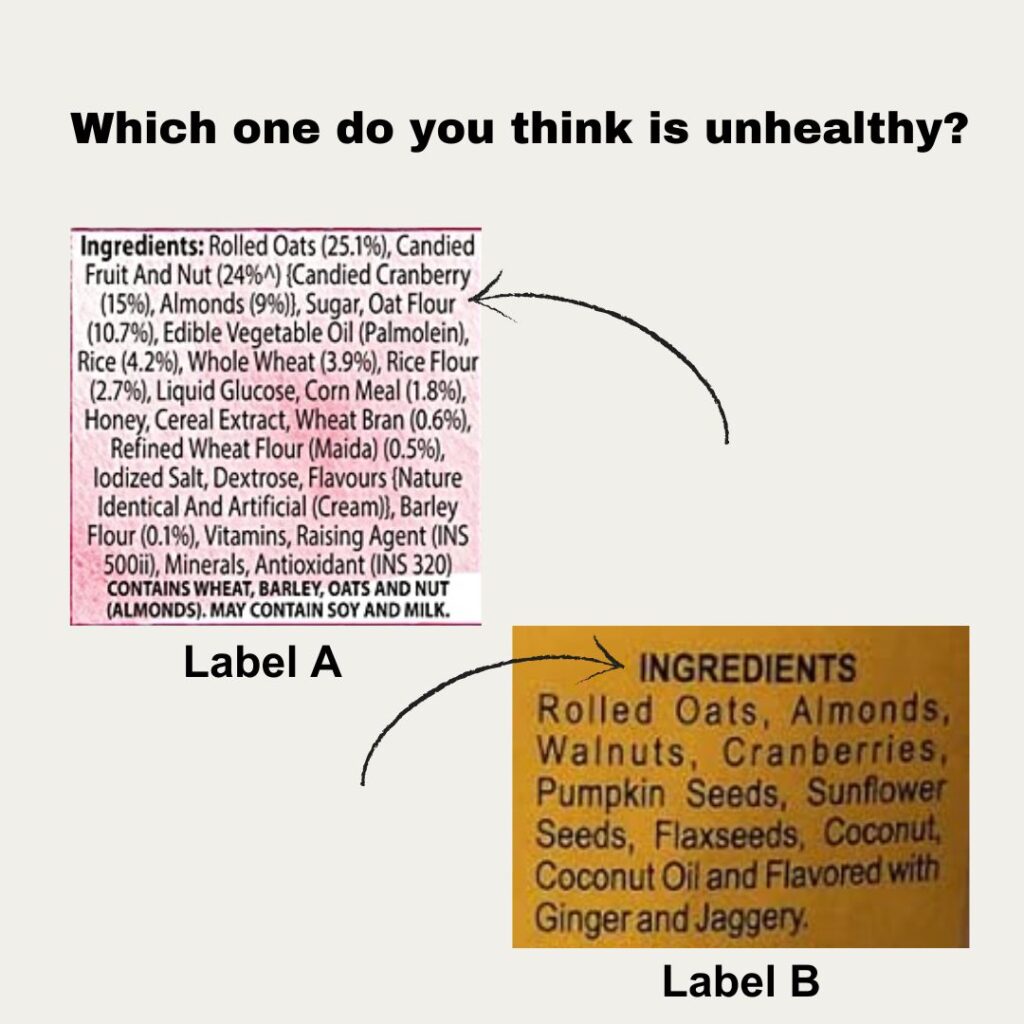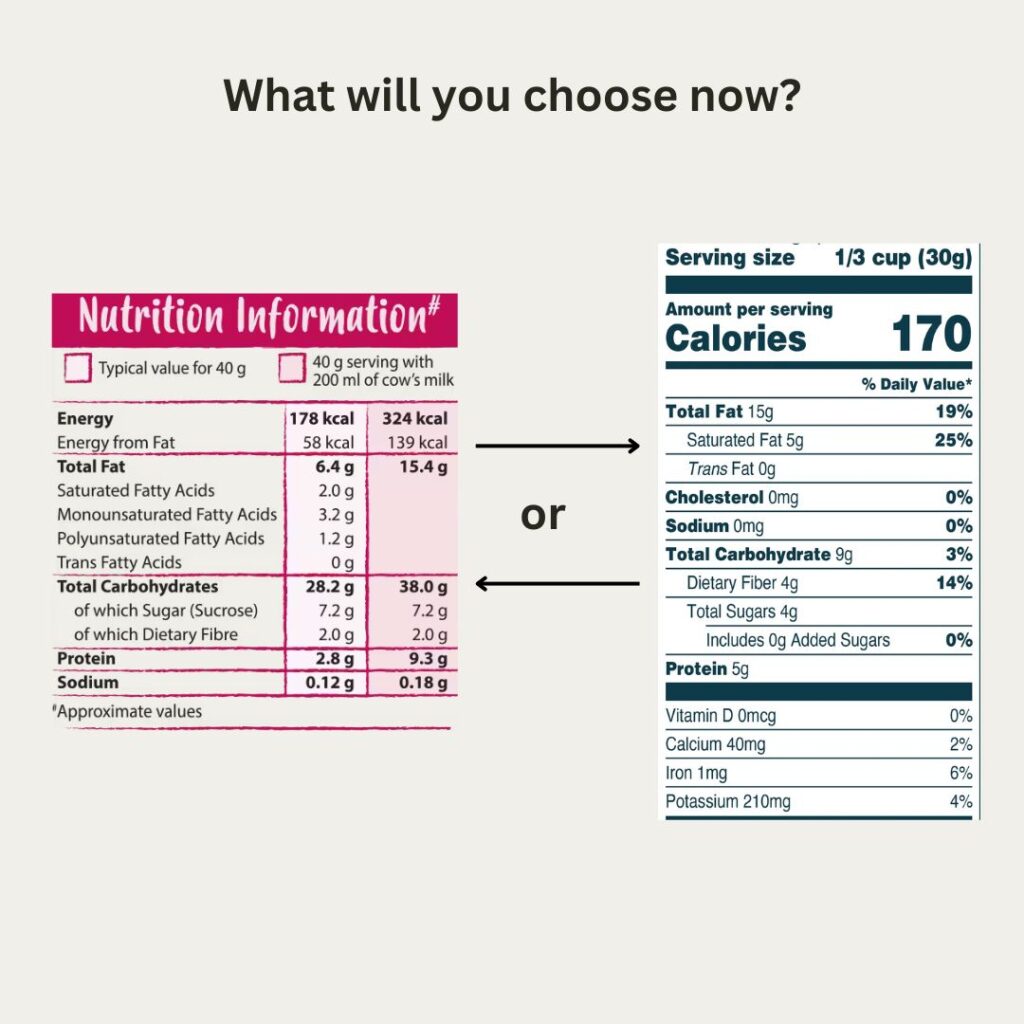How to Make 5 Smarter Choices in a World of Hidden Ingredients – My Conversation with Ashwin Bhadri
One of the most common questions I’m asked is, “Luke, what should we eat? Where do we get it from?” This isn’t just a question from patients; it’s something I ask myself for my own family. Do we truly know what we’re consuming every day? Is the peanut butter on the table safe? Are the cooking oils or protein powders in our kitchen free of harmful additives?
This lack of clarity drives me every day. I want to leave every household in this country with a simple guide to the essentials. Whether it’s cooking oils, protein powders, masalas, supplements like magnesium or omega-3, or even the utensils we use, people deserve access to honest, transparent choices.
Take cookware, for example. Did you know that some stainless steel utensils contain nickel, which can be toxic over time? Or some of the peanut butter, so many kids love,often contains mold, which we’ve seen linked to respiratory conditions like asthma? These are products we use daily, trusting that they’re safe, yet there’s often little clarity about what’s really in them.
So here’s my vision: I want to identify the top clean, safe, and transparent brands for every essential product. It’s not about promoting favorites or making endorsements, it’s about building a reliable starting point for every household. That’s why I often turn to social media, encouraging people to tag the brands they trust and ask the tough questions.
I want the founders of these brands to take center stage. I want to sit down with them and ask one simple question: Would you give this product to your child? Because I’ve met too many brand owners who import vitamins or supplements for their families while selling inferior products to others. That’s not okay. If you wouldn’t use your product for your loved ones, why sell it at all?
Why Does Food Label Transparency Matters to Me?
Food transparency isn’t just a nice-to-have; it’s a necessity. By prioritizing honest, clean-label products, we can make smarter choices that protect our health and the health of our families. This is my mission; to empower every household with the knowledge and trust they need to eat and live better.
Let’s start by demanding the honesty we all deserve.
Unmasking Food Label Loopholes: What I Learned from My Conversation with Ashwin Bhadri, the Founder & CEO of Equinox Labs, and a National Resource Person at Food Safety and Standards Authority of India (FSSAI)
I recently spoke with Ashwin Bhadri, Founder and CEO of Equinox Labs, to explore one of the most pressing questions on every consumer’s mind: Can we trust the claims on food labels?
With over 19 years of expertise, Equinox Labs is a renowned FSSAI-approved and NABL-accredited laboratory, specializing in advanced testing of food, water, and air, making Ashwin the ideal expert to shed light on this critical issue.
Ashwin gave me a behind-the-scenes look at the food industry. I asked him bluntly if brands could manipulate lab results or skip crucial compliance checks, and his response was both eye-opening and thought-provoking.
Are Brands Bypassing Testing Requirements?
Ashwin revealed that while instances of blatant non-compliance have decreased, some brands still sidestep testing requirements. He shared anecdotes of companies putting labels on products without even testing them, simply copying details from competitors’ products. For instance, he spoke about a ketchup manufacturer who admitted to using label information from a neighbor’s product without testing his own recipe.
This often stems from ignorance or cost-cutting. Some manufacturers are unaware of the requirement to test their specific formulations, while others knowingly avoid the expense. The good news, however, is that testing has become more affordable in recent years, making compliance accessible even for startups.
Empowering Consumers Through Education
One of the most encouraging aspects of our discussion was the increasing awareness among consumers. Ashwin pointed out that more people are now questioning claims like ‘fat-free’ or ‘long shelf life’ and examining ingredient lists more critically. This shift is forcing brands to rethink their practices because consumer trust directly impacts their bottom line. They are increasingly aware of what they’re eating, and concepts like ‘clean labels’ are gaining traction. People are beginning to understand that if they can’t pronounce an ingredient, it’s probably best avoided.
After all, when consumers are educated, they hold brands accountable, creating an ecosystem where compliance becomes a business imperative.
Let’s not settle for half-truths when it comes to our health.
Ashwin shared a wonderful story about schools inviting him to teach children how to read food labels. This sparked an idea: why not create an online resource for parents and kids in India? It will help them make informed choices about the food they consume.
So let’s start from here:
The Food Label Challenge
- A bad label with unhealthy ingredients like high sugar, trans fats, or artificial additives. It has hidden sugars and misleading claims.
- A good label that is transparent, simple, and free of harmful ingredients.
Here are two ingredient lists. Review them and decide which one you’d prefer for breakfast.

The first list belongs to a popular breakfast cereal from a renowned brand. A closer look reveals ingredients listed in descending order of quantity, but the exact amounts remain unknown. It prominently features sugar as a top ingredient, along with palm oil, refined flour, hidden sugars like dextrose, and preservatives, commonly consumed yet far from ideal. The second label is Jaggery Granola, a breakfast cereal by our ethical wellness platform, You Care Lifestyle, marketed as a healthier option with no preservatives or added sugars. Let’s compare their nutritional values.

The Problem of Hidden Ingredients
One of the critical issues we discussed is the prevalence of hidden ingredients in packaged foods. These ingredients are often cleverly disguised to mask their true nature or impact.
- Sugar Under Disguise
Sugar is a major culprit in many health conditions, yet it is often hidden behind a variety of names, such as:
- Maltose
- High-fructose corn syrup
- Sucrose
- Evaporated cane juice
- Invert sugar or fruit juice concentrates

Even products marketed as ‘low-fat’ or ‘healthy’ frequently compensate for taste by adding excessive sugar, which defeats the purpose of their claims.
2. Misleading Serving Sizes
Manufacturers often manipulate serving sizes to downplay calorie and nutrient values. For instance, a bag of chips may list only 50 calories per serving, but the serving size might be unrealistically small, just 10 chips. Consumers eating the entire bag unknowingly consume far more calories, sodium, and fats than they realize.
3. Trans Fats Cloaked as ‘Zero’
Trans fats, known for their adverse effects on heart health, are often labeled as ‘0 grams’ if the amount is less than 0.5 grams per serving. However, with multiple servings, the cumulative intake becomes significant, putting consumers at risk.
Your Power as a Conscious Consumer
You don’t have to wait for the industry to catch up. As consumers, we hold immense power to shape the market through our choices.
- Master the Art of Label Reading:
- Avoid products with ingredients you can’t pronounce.
- Look for hidden sugars, trans fats, and small serving sizes designed to mislead.
- Pay attention to allergen disclosures and nutritional content.
- Support Honest Brands: Choose companies that voluntarily disclose lab reports or use QR codes for batch testing results. Founder-driven brands often have more integrity, as their reputation is closely tied to the product.
- Prioritize Safe Packaging: When ordering food, opt for biodegradable and food-safe containers if available. Hot food stored in plastic containers can cause harmful chemicals to leach into your meals, which then enter your body. This poses long-term health risks, especially for individuals with pre-existing conditions. Our petition addresses this issue by urging food delivery platforms in India to offer an option for biodegradable packaging. Let’s work together to make safe, sustainable packaging the new standard!
- Sanitize Fresh Produce: Regardless of where you shop, wash vegetables and fruits thoroughly. Consider investing in ozone-based cleaners to eliminate pesticides and contaminants.
- Spread Awareness: Share what you learn. Educated consumers inspire change by holding brands accountable and influencing friends and family to make smarter choices.
What’s Going Right: A Shift in Mindset Among Brands
There is a noticeable change in the attitude of food brands over the last five years. Today, more founders are coming forward with a commitment to getting it right. They want to know exactly what needs to be done and are willing to make the necessary changes to comply with regulations. Unlike in the past, when some brands might have tried to manipulate lab reports or dismiss feedback, many now recognize the long-term risks of non-compliance.
Food Safety and Standards Authority of India (FSSAI) is a young regulatory body, adapting quickly to the needs of the country. For instance, FSSAI has introduced several impactful programs:
- FoSTaC: This program has trained over 20 lakh food supervisors to ensure food safety.
- Hygiene Ratings and Eat Right Campaigns: These encourage both consumer education and higher compliance from brands.
- Upcoming Front-of-Pack Labeling: Within six months, FSSAI plans to mandate clear labels indicating high-fat and high-sugar content.
My experience with FSSAI has been incredibly positive, they’ve been responsive, proactive, and open to support, challenging the usual hesitations about government bodies.
A Collaborative Future
Yes, there’s still work to be done, but it’s clear that we’re moving in the right direction. It’s up to all of us; whether we’re consumers, brand owners, or health advocates, to keep pushing for a food system that prioritizes honesty, safety, and health.
Our right to honest food starts with the choices we make. Every meal should be safe, healthy, and responsibly packaged. We deserve the option to choose eco-friendly, food-safe containers, especially when it comes to delivery. It’s time for food delivery services too to prioritize our health and the environment.
Sign the petition today and let’s demand better, safer packaging for every meal!
For consumers, the takeaway is clear: be educated, not influenced. Look beyond marketing and endorsements. Verify the product’s quality through reports and certifications. Trust should be built on transparency and accountability, not on flashy advertisements. Because, when it comes to food, choice is everything.
Watch my whole conversation with Ashwin Bhadri
Disclaimer: While every effort has been made to provide accurate and up-to-date information, this blog is for informational purposes only. It is not intended as medical or nutritional advice. Readers are encouraged to consult with health professionals or food safety experts for personalized guidance. The views expressed in this blog are those of the author and the interviewee and do not necessarily reflect the views or opinions of any organizations mentioned.
At the heart of a healthier lifestyle is proactive care.
If you’re looking to make smarter food choices and safeguard your well-being, consider joining our Preventive Care Programs.
Schedule a one-on-one consultation with our experts by calling us at 1800 102 0253 or emailing us at consults@lukecoutinho.com.
|
From a pimple to cancer, our You Care Wellness Program helps you find a way Talk to our integrative team of experts today 18001020253 |










Leave a Reply